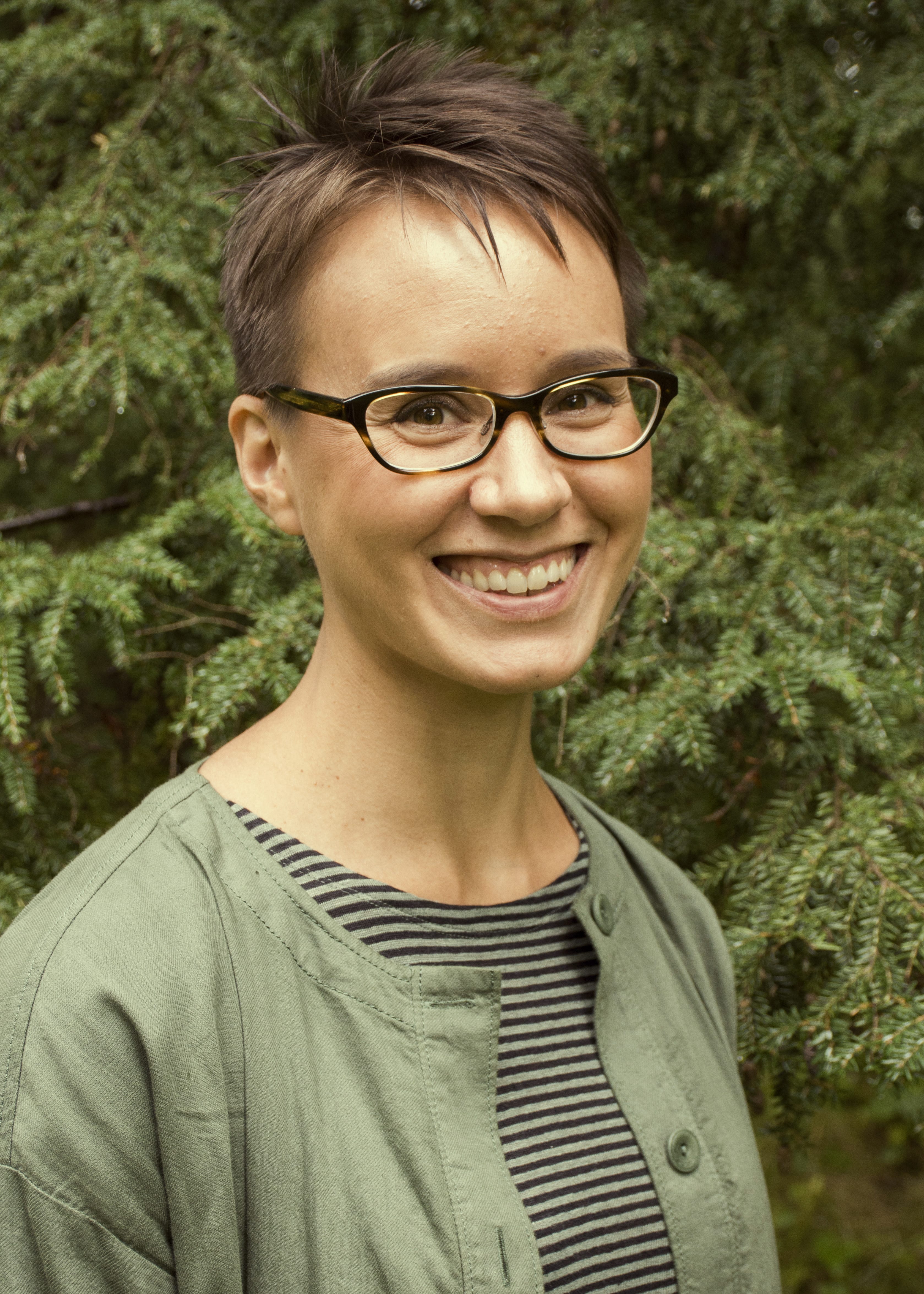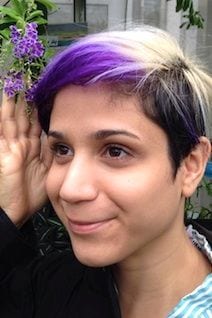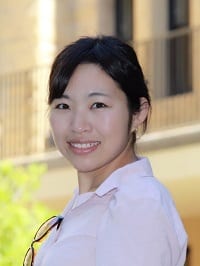Listen to the HD Today e-NEWS Listen Notes playlists of podcasts featuring HD faculty interviews.

Listen to the HD Today e-NEWS Listen Notes playlists of podcasts featuring HD faculty interviews.

HD TODAY e-NEWS is a quarterly digest of cutting-edge research from the Department of Human Development, College of Human Ecology, Cornell University. Explore the HD Today e-NEWS website at https://hdtoday.human.cornell.edu/ and discover a wide range of resources:

Charles Brainerd, professor of human development and human neuroscience, will receive the American Psychological Association’s G. Stanley Hall award for distinguished contributions to developmental science at the APA’s August 2019 meeting in San Francisco.

Karl Pillemer, the Hazel E. Reed Professor in Human Development and senior associate dean for research and outreach in the College of Human Ecology, has developed the Partners in Caregiving in Assisted Living Program (PICAL) to reduce staff-family conflict in assisted living facilities.

The Institute for the Social Sciences (ISS) grants awards to faculty to develop new research or seek external funding. bethany ojalehto received funding for her project, "Cognitive Drivers of Environmental Decision Making: Mobilizing Indigenous Ecocentric Conceptual Perspectives in Diverse Contexts."
 Adam Anderson and Eve De Rosa recently studied why it is hard for people to save money. They found that when people were given the choice, over 90% of the time they chose earning money to saving it. They discuss how our brains may be hard-wired for earning and that saving requires more conscious effort.
Adam Anderson and Eve De Rosa recently studied why it is hard for people to save money. They found that when people were given the choice, over 90% of the time they chose earning money to saving it. They discuss how our brains may be hard-wired for earning and that saving requires more conscious effort.

Felix Thoemmes uses math models to better understand why high school students who are old for their grade are more likely to enroll in college than students who are young. The article discusses how the age at which one starts school has implications for each student as well as for the class as a whole.
 Robert Sternberg was interviewed on October 9, 2018 for the podcast, What Makes Us Human?from Cornell University's College of Arts & Sciences. This is the podcast's third season, "What Do We Know About Love?" and Dr. Sternberg discusses his "Triangular Theory of Love."
Robert Sternberg was interviewed on October 9, 2018 for the podcast, What Makes Us Human?from Cornell University's College of Arts & Sciences. This is the podcast's third season, "What Do We Know About Love?" and Dr. Sternberg discusses his "Triangular Theory of Love."

The Institute for the Social Sciences (ISS) grants awards to faculty to develop new research or seek external funding. bethany ojalehto received funding for her project, "Cognitive Drivers of Environmental Decision Making: Mobilizing Indigenous Ecocentric Conceptual Perspectives
in Diverse Contexts." In her work with the Indigenous Ngobe communities of Panama, ojalehto has studied the unique way they think about and interact with their environment. The Ngobe peoples behave in response to an environment they perceive as a dynamic agent. In contrast, our culture acts on an inert environment and makes decisions about it from a purely human-centered position. ojalehto will explore how the Ngobe's conceptual understanding of the environment can help us improve our ecological decision making.

In a new recurring feature, the Observer showcases university labs and departments that have advanced integrative science. In the inaugural installment, APS Fellow Qi Wang talks about Cornell University’s Department of Human Development, which she chairs.

The Department of Human Development welcomes 4 faculty members with research interests that include network science, social media, epigenetics, ecology, conceptual development and cultural diversity, and social cognition.
 Lin Bian will join the Department of Human Development in January 2019 as the Evalyn Edwards Milman Assistant Professor. Watch the NBC News video to learn more about her research on the acquisition and consequences of gender stereotypes about intellectual ability.
Lin Bian will join the Department of Human Development in January 2019 as the Evalyn Edwards Milman Assistant Professor. Watch the NBC News video to learn more about her research on the acquisition and consequences of gender stereotypes about intellectual ability.
 One of the central goals in the establishment of the Cornell Magnetic Resonance Imaging Facility (CMRIF) has been to help foster innovative technology development among faculty from diverse disciplines, including animal science.
One of the central goals in the establishment of the Cornell Magnetic Resonance Imaging Facility (CMRIF) has been to help foster innovative technology development among faculty from diverse disciplines, including animal science.
 Valerie Reyna is collaborating with Holly Prigerson of Cornell Weill Medical College on an intercampus palliative care project as part of the recently established Academic Integration Initiative which fosters research between the Cornell Ithaca and the Cornell Weill New York City campuses.
Valerie Reyna is collaborating with Holly Prigerson of Cornell Weill Medical College on an intercampus palliative care project as part of the recently established Academic Integration Initiative which fosters research between the Cornell Ithaca and the Cornell Weill New York City campuses.
 APS President Suparna Rajaram invited four distinguished psychological scientists to speak about memory from cognitive, neuroscientific, cultural, and developmental approaches as part of the Presidential Symposium at the 30th Annual APS Convention in San Francisco. Watch Qi Wang's presentation, "Studying Memory Development in Cultural Context: A Multi-Level Analysis Approach".
APS President Suparna Rajaram invited four distinguished psychological scientists to speak about memory from cognitive, neuroscientific, cultural, and developmental approaches as part of the Presidential Symposium at the 30th Annual APS Convention in San Francisco. Watch Qi Wang's presentation, "Studying Memory Development in Cultural Context: A Multi-Level Analysis Approach".
The Department of Human Development welcomes 4 faculty members with research interests that include network science, social media, epigenetics, ecology, conceptual development and cultural diversity, and social cognition.

William Hobbs received his doctorate in political science from the University of California at San Diego and comes to Cornell from Northeastern University where he was a postdoctoral fellow at the Network Science Institute. At Cornell, he has a joint appointment in Human Development and the Department of Government. A central feature of Hobbs' research is the use of complex relational data to study "the social effects of government policies, on how small groups of people adapt to sudden changes in their lives, and on low-dimensional representation (data that has been processed to reduce the number of random variables) of social interaction and language." [Read Dr. Hobbs' CV to learn more about his research.] One of his recent publications involved an analysis of the effect of interacting on social media networks specifically, Facebook, and longevity. [Read more about the study in a story by CBS News.]

Marlen Gonzalez arrived at Cornell this summer after completing the Charleston Consortium Internship Program, a joint endeavor of the Medical University of South Carolina and the Ralph H. Johnson Veterans Affairs Medical Center. She received her doctorate from the University of Virginia (UVA), where she studied with Dr. James Coan and engaged in a truly diverse interdisciplinary research program, including, developmental psychology, neuroscience, epigenetics, evolutionary biology, and behavioral ecology. As a graduate student at UVA, Gonzalez was a LIFE Fellow from 2014-2017 which enabled her to study at UVA and at the International Max Planck Research School on the Life Course in Berlin. The central question guiding Dr. Gonzalez's research is "How do our developmental environments, and especially our social environments, shape our nervous system and biobehavioral strategies for coping in adulthood."

Bethany ojalehto has returned to her academic roots in Human Development and the College of Human Ecology. She graduated with honors (she received the Zuckerman award for best senior thesis in HD) from Human Ecology in 2008 having majored in psychology and human rights with a certificate of African Studies and was a mentee of HD Chair, Qi Wang. Her undergraduate years were funded by a number of prestigious scholarships, including, The Nancy and Andrew Persily Scholarship, the Merrill Presidential Scholar, and the Cornell Presidential Research Scholar. Upon graduation, ojalehto received a U.S. Fulbright Research Grant to Kenya, Law and Psychology and studied cognitive development in a Kenyan refugee camp. She completed her masters and doctorate at Northwestern University under the mentorship of Drs. Douglas Medin, Sandra Waxman, and Rebecca Seligman. As a graduate student she received a Smithsonian Tropical Research Institute Short-Term Fellowship for a study of “Cultural Models and Conceptual Development in a Ngöbe Community,” Panama. She was awarded a National Science Foundation Graduate Research Fellowship for her dissertation and continued her work as a postdoctoral fellow at Northwestern. According to ojalehto, her research "explores how people conceptualize agency and ecologies, with a focus on cultural variation in social cognition and human-nature relationships." [Read more about Dr. ojalehto's research and outreach at website: http://sites.northwestern.edu/ojalehto/ and watch her presentation at the National Academy of Sciences Arthur M. Sackler Colloquium, Pressing Questions in the Study of Psychological and Behavioral Diversity].

Lin Bian will join the Department of Human Development in January 2019 as the Evalyn Edwards Milman Assistant Professor. She is currently completing a postdoctoral fellowship with Dr. Ellen Markman at Stanford University. Dr. Bian received her doctorate in developmental psychology from the University of Illinois at Urbana-Champaign in 2017 under the mentorship of Drs. Andrei Cimpian and Renée Baillargeon. Her research examines the development of social cognition, with an emphasis on children’s reasoning about social groups. In this vein, she has pursued two major lines of research: One line of work focuses on the acquisition and consequences of stereo- types about social groups for children’s interests and motivation. The other line of work focuses on infants’ and toddlers’ sociomoral expectations, especially as how they apply to behaviors within vs. across group boundaries. [Watch the NBC News video about Dr. Bian's research, Psychologist Breaks Ground with Gender Bias Study].